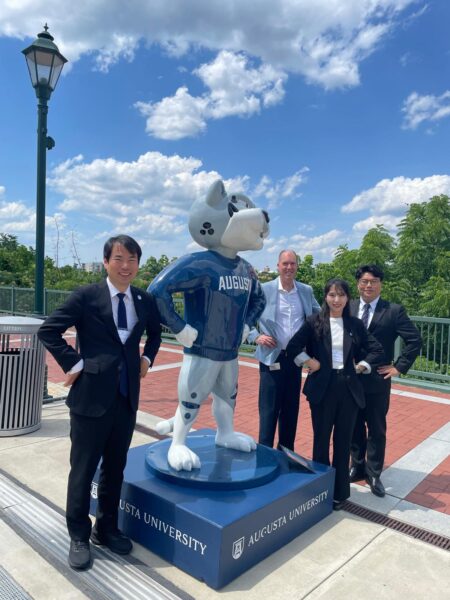Investigating and Preventing Technology, Cyber and Economic Crimes

As cyber threats and economic coercion escalate across the global landscape, strong bilateral cooperation has never been more critical. Through the International Visitor Leadership Program (IVLP), a delegation of cybersecurity and economic crime experts from the Republic of Korea (ROK) visited the United States to examine interagency approaches to safeguarding critical infrastructure, enforcing export controls, and countering malicious cyber activity. This project, designed to strengthen U.S.-ROK cooperation on shared security priorities, emphasized both formal frameworks and grassroots innovation in the face of fast-evolving digital threats.
Project Objectives
- Examine U.S. efforts to identify, prevent, and respond to cyber and economic crimes, particularly in relation to strategic technologies.
- Strengthen bilateral cooperation between the U.S. and Republic of Korea by fostering connections between cybersecurity practitioners, trade officials, and law enforcement professionals.
- Explore the role of federal, state, and academic institutions in securing technological innovation, enforcing export controls, and deterring coercive economic practices.
- Understand the U.S. model for interagency coordination on issues of technology protection, investment screening, and technology licensing.
- Highlight best practices in countering cyber-enabled threats while safeguarding innovation ecosystems and private sector partnerships.
Project Design
Washington, D.C.: The delegation began in the nation’s capital, where they met with FBI cyber specialists to discuss strategies for disrupting adversarial behavior targeting U.S. networks, trade secrets, and financial institutions. The briefing emphasized the importance of preemptive action and behavioral analysis in cybersecurity defense.
Atlanta, GA: In Atlanta, participants explored the intersection of innovation, licensing, and economic security. At Georgia Tech, discussions centered on how the Office of Technology Licensing ensures secure trade of emerging technologies. At Augusta University’s Security Operations Center, participants learned about the importance of public-private partnerships in driving cybersecurity innovation and threat detection.
St. Louis, MO: While in St. Louis, visitors reflected on American history during a visit to the Soldiers Memorial Military Museum. The stop offered an opportunity to understand how communities commemorate service and national resilience.
Phoenix, AZ: The group concluded the program at Arizona State University, meeting with Professor Gail-Joon Ahn of the School of Computing and Augmented Intelligence. The discussion focused on the role of academic research in building next-generation cyber defenses and strengthening resilience through AI and machine learning applications.
Impact and Next Steps
This IVLP program broadened visitors' understanding of the United States, revealing not just the breadth of its geography, but also the distinct regional approaches to innovation, governance, and public-private collaboration. The contrast between regions underscored the strength of decentralized innovation and broad-based collaboration on America’s economic and cyber security priorities.
In the coming months, participants are expected to:
- Share U.S. models of interagency coordination with counterparts in the Republic of Korea to inform domestic reforms.
- Deepen collaborative ties with academic institutions and law enforcement agencies encountered during the program.
- Explore opportunities to apply U.S. best practices in technology licensing and cybercrime prevention within ROK government and industry networks.
Project summary
| Investigating and Preventing Technology, Cyber and Economic Crimes | |
|---|---|
| Regions: | East Asia and Pacific |
| Countries: | South Korea |
| Impact Areas: | Science and Technology, Security and Defense |
| Program Areas: | Global Leadership |